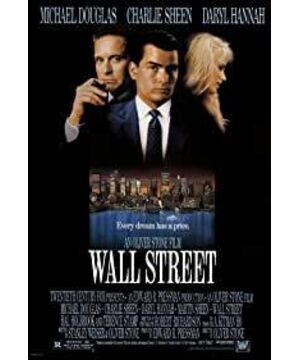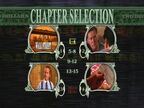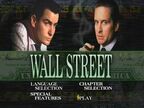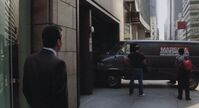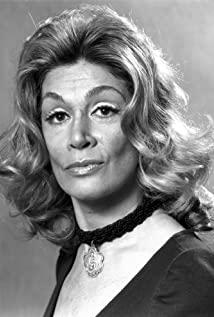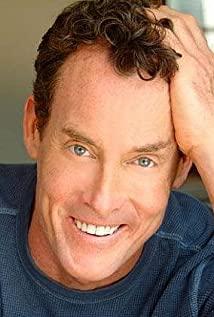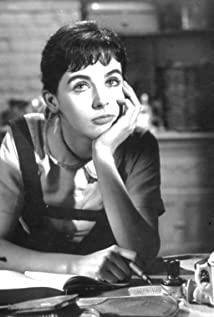Let's start with "Wall Street" in 1987. The screenwriter and director are the famous Oliver Stone. This man has always been known for his attention to political themes, and has even been advertised as a representative of conspiracy theorists, especially his "Assassination of Kennedy". His Vietnam War movie "Field Platoon" is also famous in history. Many professional movies often fall into gimmicks and shallowness due to the fact that the producers are unfamiliar with the actual situation of the industry and lack of professional knowledge, and Oliver Stone's works cannot fail to pursue technical content and professionalism. He hired Wall Street tycoon Ken. Lipper as a consultant, and this film is indeed professional, at least as a layman I can see that the financial operations in it are correct, not just lip-smacking jargon. The logic of the whole film is self-consistent, the quality of the lines is not low, and there are many famous sayings worth noting.
Besides the actors, this lineup is quite surprising. Michael Douglas created the most successful screen image in his career, Gordon Gekko. First of all, his gangster temperament is very suitable for this role. In addition, after he got this role, he went to Wall Street to experience life, imitating the temperament and mentality of Wall Street people. , in the film's words and deeds, and even the sitting posture and expression have made great efforts. In the end, the hard work paid off, and he won the Oscar for best actor that year. It is said that Wall Street people also recognized his performance, saying that it is in place and true. Charlie Sheehan's role as Bud Fox is not inferior, and it can be regarded as an excellent completion of the character shaping, from the ignorant and reckless young man to the climax of his career, and then to enlightenment until he falls to pieces, but it is not like Michael Douglas. Brilliant. Martin Sheehan, who plays his father, is also his real father, which shows the degree of perfection that Stone pursues. Another big surprise in the film is that Bud's lawyer friend turns out to be James Spader, our beloved comrade Alan Shore. 23 years ago, he was blond and handsome, but he already had the style of Alan Shore, especially his eyes and chin. A lawyer professional. Director Oliver Stone played a passerby in Bud's office and had a Hitchcock addiction. The youngest son of Michael Douglas in the film is actually the son of Oliver Stone.
There are four main plots involving market operations in the film. The first is that Bud Fox, played by Charlie Sheehan, leaked inside information about his father's airline to Gordon Gekko, played by Michael Douglas, and heard that Gekko was going to reorganize "TEDA Paper". Bud went back and secretly bought a batch of this stock, set up a rat warehouse, and then used it to exchange information with an old classmate of lawyers, all of which are easy to understand; the second is Gordon sent Bud to track another big chaebol Sir Wildman, and finally He discovered that he was going to acquire and restructure "Ankang Steel", and then used a secret fund account to drive up the stock price in advance, and at the same time let more buyers follow up through Bud's leaking news. In the end, Wildman had no choice but to buy the shares of Gekko at a high price; The third is the equity battle of "TEDA Paper". Gekko's aggressive acquisition of TEDA's shares aroused doubts among the company's management. At the shareholders' meeting, the management called on shareholders to veto Gekko's bid, and Gekko fought back aggressively, publishing The most famous speech in the film "Greed is good. Greed is right. Greed works" won the support of the majority of shareholders; the fourth point is the climax of the film, Bud wants to borrow Gekko's sufficient funds to let his father live The airline "Blue Star Airlines" came back to life. Unexpectedly, Gekko was looking at the company's retirement pension fund. He intended to split and sell Blue Star, and then make a net profit of 25 million US dollars after laying off all employees. After Bud learned the truth, he decided to take revenge. The method he used was similar to what Gekko did with Wildman. He deliberately leaked the news of Blue Star's reorganization and triggered a large number of buying orders from Blue Star Airlines. After the stock price started to rise, Gekko hurriedly took in it. He heard that Gekko After the heavy position, Bud immediately released rumors and triggered a fire sale frenzy. At this time, the union leader who learned about the Gekko split conspiracy came to Gekko again (this was also arranged by Bud). Gekko, who lost the support of the union, had to sell the Blue Star stock. I can still make a fortune, but there is a huge amount of selling in the market, and Gekko, who has a heavy position, can’t sell it at all. The stock price plummeted to 18 yuan, which was all eaten at a low price by Gekko's old enemy, Wildman, who of course was also Bud's collaborator. In this way, Wildman was restructured by Bluestar at a low price, and the company was able to revive, and at the same time, Gekko lost a lot of money. It can be said that the interpretation of this paragraph is coherent and without losing the drama.
It can be said that the plot of the film involving the financial field is basically inseparable from inside information and insider trading. It can be said that in today's huge financial market situation, it is impossible to squeeze short positions at will, and the most effective way to make money is inside information. That's the main content of Gekko's lesson for Bud: ditch all securities analysis and charts and track the big shareholders. "Don't think that we are in a democratic country. We are in a free market." In each struggle, they also quoted many famous lines from "Sun Tzu's Art of War".
Under the plot packaging of these financial and commercial themes, the main plot of the film is actually very typical of Hollywood. I think it can be compared with the 2001 movie "Training Day", although it is a police theme: a younger brother who has just entered the industry follows a boss. The soaring prosperity, with banknotes and beautiful women, fell into doubt and confusion at the same time. Finally, the boss extended his black hand to the person he loved (father or girlfriend).
The film thus expresses the loss of people in the ups and downs of fate, and the tragic fate after being lost. But obviously, what this film brings to most young people is the passion of money and the thrill of the game, and Michael Douglas has created an idol-level image, attracting countless passionate young people to the place of right and wrong on Wall Street.
WeChat public account: feidududu watching movies (feidudumovie)
View more about Wall Street reviews


